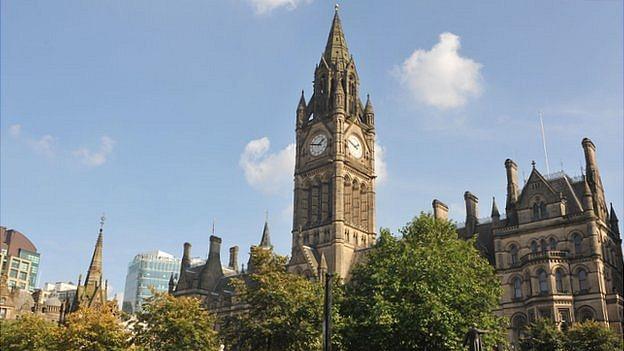Sheffield City Region: Elected mayor in 2017 after devolution deal signed
- Published
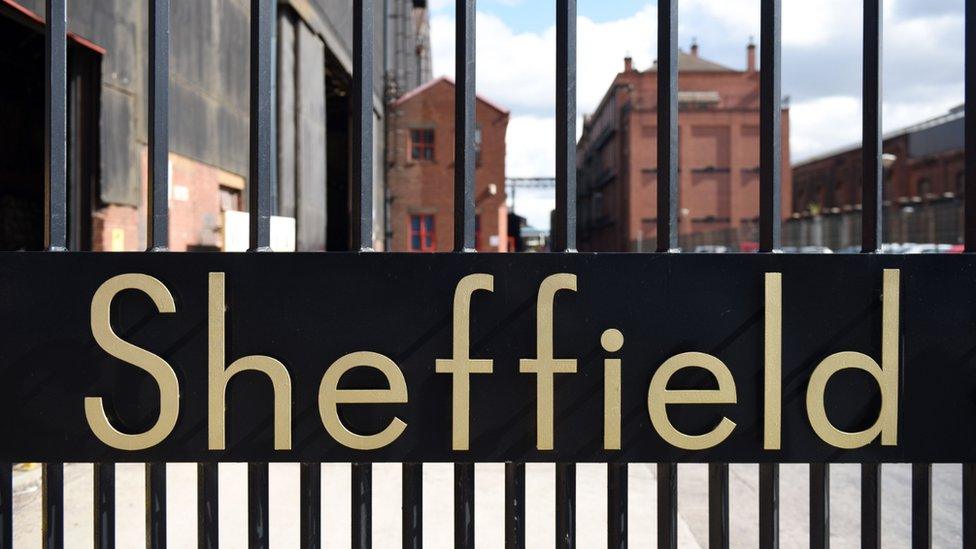
George Osborne says Sheffield was "forging ahead" in the so-called Northern Powerhouse
Chancellor George Osborne has signed an agreement with political leaders in South Yorkshire paving the way for an elected mayor for the region.
The Sheffield City Region, external was one of 38 places to bid for increased control in how public money is spent in its area.
The deal - part of the government's northern powerhouse programme - will require the support of local councils and be subject to public consultation.
As part of the deal, a Sheffield City Region mayor will be elected in 2017.
The mayor will be responsible for transport budgets and strategic planning.
The agreement means the Sheffield City Region will also have access to a pot of government money - £30m a year over 30 years - enabling Sheffield to boost local growth and invest in local manufacturing and innovation.
The mayor will chair meetings for Sheffield City Region Combined Authority., external
The city region is comprised of the nine local authority areas of Barnsley, Bassetlaw, Bolsover, Chesterfield, Derbyshire Dales, Doncaster, North East Derbyshire, Rotherham and Sheffield.
Mr Osborne said Sheffield was "forging ahead" in creating a northern powerhouse.
He said: "We have signed this historic deal to transfer power from Whitehall to South Yorkshire, to an elected mayor accountable to local people, so that the decisions that affect this area are taken by local people."
The chancellor described the northern powerhouse as "a collection of northern cities sufficiently close to each other that combined they can take on the world" when he unveiled the plan for devolution , externalin England's cities in June 2014.
Last November, he announced Greater Manchester was to have an elected mayor and next year the region is to become the first in England to get full control of its health spending.
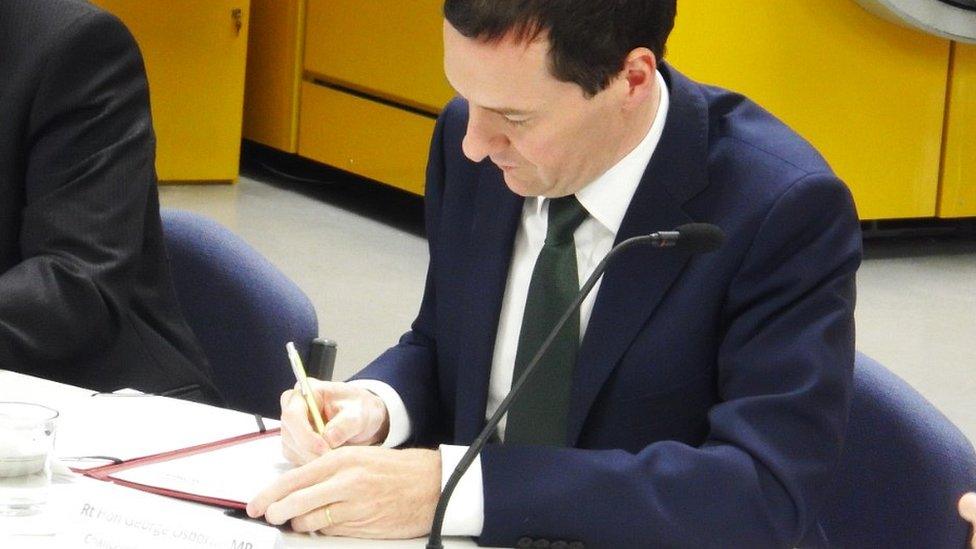
George Osborne signed the deal at the University of Sheffield's Advanced Manufacturing Research Centre
Analysis: Len Tingle, Political editor, BBC Yorkshire
The Sheffield City Region deal jumped the queue to be announced because it was the most clearly defined bid from clusters of local authorities across the country.
All four big South Yorkshire district councils, together with five smaller ones in the North Midlands, have been in agreement for some time that their economies are so closely linked that they are the obvious partners to take on extra powers and budgets from central government.
Virtually all Labour-controlled, they set aside their opposition to having a directly-elected executive mayor in order to gain the financial benefits on offer.
The position across the rest of Yorkshire and the Humber is not so clear. At least four other bids for the same devolved status were made to the government last month involving different combinations of clusters of local councils. Some authorities, including North Yorkshire, the City of York and all the West Yorkshire councils were included in at least two.

Richard Wright, executive director of Sheffield Chamber of Commerce, said he was "pleased with the move".
He said: "What we now need to do is sit down and decide what the mayor is going to do, is responsible for, has to deliver and pick the right person to do that job.
"It has to be the person that can help this region drive the economy forward and grow it faster than we have been growing it over the past few years."
But Richard Carter, leader of the Yorkshire First party, described it as "bad news for Yorkshire".
He said: "A backroom deal between George Osborne and local council leaders has produced an arrangement which breaks up Yorkshire, barely delivers any devolution of note and flies in the face of public opinion."
Northern powerhouse in numbers
-
16.7 UK population (%)
-
16 Share of UK jobs (%)
-
13.3 Share of total UK GVA (%)
-
23 Number of universities
When the Chancellor unveiled the planned Cities Devolution bill shortly after the general election in May, Labour claimed the government's "piecemeal approach" could mask big cuts to local councils' spending.
Gary Porter, chairman of the Local Government Association, said: "Today's announcement is very good news for people living in the Sheffield city region and another step forward on the road towards widespread English devolution.
"Devolution is not an end in itself though. If our public services are to survive the next five years, councils also need to be given fairer funding alongside the freedom to take their own spending decisions."
BBC assistant political editor Norman Smith said the chancellor hoped the move would "reignite" areas such as Manchester, not just economically but also to renew a sense of civic pride.
But it is also designed to "wrong foot" Labour in their northern heartlands, and to "re-present" the Tories in the north where they have traditionally been "on the back foot", he added.
- Published14 May 2015
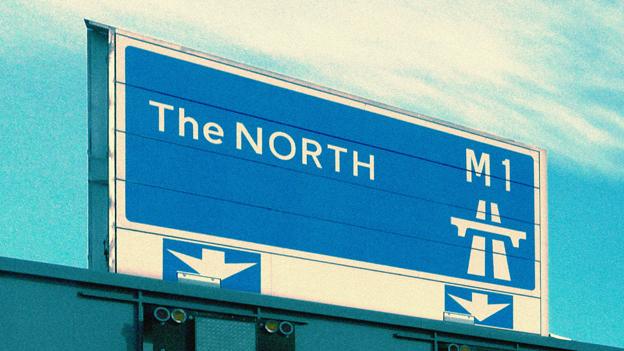
- Published14 May 2015
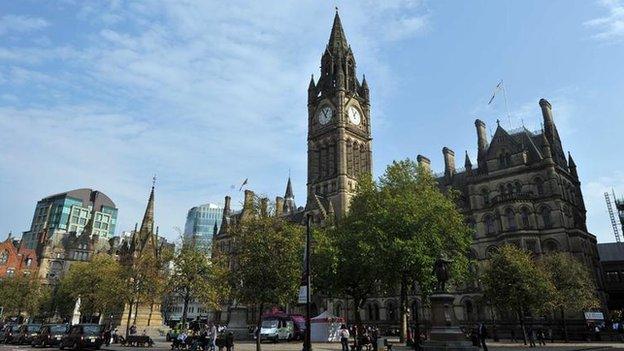
- Published3 November 2014
